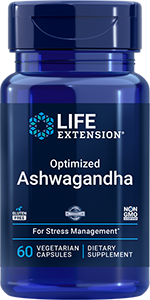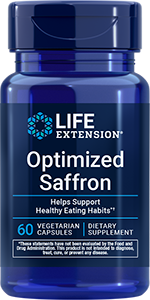
Newsletter
Newsletter
Alpha-lipoic acid supplementation associated with less inflammation among diabetics with history of heart attack

July 28, 2020
The January-March 2020 issue of the Journal of Medicine and Life published the findings of a study that revealed a reduction in markers of inflammation among type 2 diabetics with prior myocardial infarction (heart attack) who received supplements containing alpha-lipoic acid.
The study included 67 men and 45 women with type 2 diabetes and a history of non-Q-myocardial infarction who were being treated with oral antidiabetic therapies and basic cardiovascular medications. The group was matched for age and sex with 40 subjects who were free of chronic diseases. The diabetics were divided into two groups: one with 59 people, who received 600 milligrams orally administered alpha-lipoic acid per day for four months in addition to their prescription drug regimen, while the other 53 received only their prescription drugs. Blood samples were analyzed for serum markers of inflammation that included C-reactive protein (CRP), interleukin-6 (IL-6) and tumor necrosis factor-alpha (TNF-a) before and after the treatment period.
Upon enrollment, diabetics who received alpha-lipoic acid had serum CRP levels that averaged 2.7 times higher, IL-6 levels that averaged 4.4 times higher and TNF-a levels that averaged 3.1 times higher than the healthy control group. Similar levels were measured among the diabetic participants who did not receive lipoic acid. At the end of four months, participants who received alpha-lipoic acid experienced a 30.9% decline in CRP, a 29.7% decrease in IL-6 and a 22.7% reduction in TNF-a, while the unsupplemented diabetic group experienced nonsignificant changes in these markers.
Authors Natalia A. Altunina and colleagues observed that alpha-lipoic acid’s anti-inflammatory effect is considered to be independent of its better-known antioxidant activity, and that clinical evaluation of this effect has been limited to a few studies. They explained that alpha-lipoic acid inhibits nuclear factor-kappa beta (NF-kB), which is associated with inflammation and other processes.
The authors concluded that alpha-lipoic acid “can be used to reduce the activity of systemic inflammation as a predictor of diabetes and coronary heart disease progression.”
Products
Apply What You’ve Learned: Alpha-lipoic Acid
- Alpha-lipoic acid is an antioxidant produced in the body that is also found in spinach, broccoli and other foods.
- The “R” form of lipoic acid, as opposed to the “S” form, is the biologically active form of lipoic acid.
-
Research has shown that lipoic acid helps support healthy endothelial function.1
- Alpha-lipoic acid was one of a potentially rejuvenating duo of nutrients that, when given to aged rats, prompted researcher Bruce N. Ames to memorably observe that the animals “got up and did the Macarena.”2 (The other was acetyl-L-carnitine.)
References
- Sola S et al. Circulation. 2005 Jan 25; 111(3):343-8.
- Hagen TM et al. Proc Natl Acad Sci. 2002 Feb 19;99(4):1870-5.
Featured Life Extension Magazine® Article
When Your Immune Function Falls
by William Faloon
A well-functioning immune system is something most of us take for granted. Yet, as we grow older, a decline in immune function results in lowered resistance to infections and increased inflammation.
Immunosenescence is a leading cause of disability and mortality. However, specific nutrients may help counteract aspects of this aging-related phenomenon. For example, older men and women experience a decrease in naïve T cells and functional natural killer cells, while memory T cells and inflammation increase. These changes may be countered in part by the addition of the herb Cistanche tubulosa to one’s nutritional regimen. Other nutrients, including zinc and DHEA, have been used by life extensionists for decades to help maintain immune function and support a healthy level of inflammation.
Researchers are currently investigating the means to reverse immunosenescence and other areas of decline that accompany aging. For most of us, this can’t happen soon enough.
Energy Management Supplement Guide
By answering a few simple questions, we will help you choose the energy health supplements that are right for you.
What's Hot
Health Concern
Antioxidant combo improves inflammation in heart failure patients
Results from double-blind, crossover study reported on April 9, 2019 at the American Physiological Society's (APS) annual meeting at Experimental Biology 2019 in Orlando revealed that the intake of three antioxidant compounds helped control inflammation and boost nitric oxide in heart failure patients with preserved ejection fraction.
Chronic Inflammation
In this protocol you will learn about risk factors for inflammation and lab tests used to identify and monitor inflammation within the body. You will also discover several natural strategies for combating the negative side effects of chronic inflammation.
Related Life Extension Magazine® Articles

Fighting Inflammation by Inhibiting NF-KB
Inhibiting a cellular protein complex called nuclear factor kappa B (NF-kB) helps prevent inflammation-driven aging as well as insulin resistance and arthritis. Several nutrients can safely block NF-kB to reduce systemic inflammation.

How Lipoic Acid Preserves Critical Mitochondrial Function
Pharmaceutical companies are spending huge resources to develop a patentable version of the natural compound lipoic acid. This nutrient protects vital cellular energy and shields against diabetes, obesity, cardiovascular disease, and neurodegeneration.
Life Extension Magazine® Now Online
The medical profession and FDA are recognizing the role of fish oil in reducing cardiovascular risks. Consumers have the option of fish oil prescription drugs or low-cost supplements. An omega-3 index blood test can enable people to optimize individual dosing of fish oil.
Moving? Need to update your address?
If you currently receive Life Extension® Magazine and your address has changed, please let us know. Simply call 1-800-678-8989, and we'll gladly update your information in our systems. Or login to your account on LifeExtension.com.
Optimized Saffron with Satiereal® (item #01432): This supplement should be taken in conjunction with a healthy diet and regular exercise program. Individual results are not guaranteed, and results may vary.







